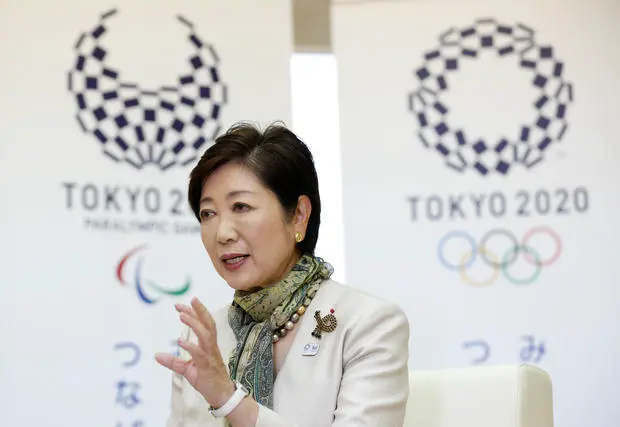As a society bound by tradition, change comes slowly to Japan. That includes opportunities for women in politics and government.
But lately there's been a shake-up of the old order, with women reaching new heights that could hardly be imagined just a generation ago.
"My way of thinking is quite different from the previous governors. At least I'm not chauvinistic," Yuriko Koike said, smiling.
As Tokyo's first female governor, Koike is used to breaking glass ceilings, reports CBS News correspondent Adriana Diaz. Japanese politics have long been dominated by men, and some are hostile to change.
"A former governor said, 'We can't leave Tokyo to a woman who wears too much makeup.' What did you think when you heard that?" Diaz asked.
"Unfortunately, in Japan, men still look down on women," Koike responded in Japanese. "I want to change that. But I should thank the governor. His comments gave me more female votes."
Since taking office in August, she has battled corruption and financial waste, including cost over-runs from Tokyo's 2020 Olympics. That drive made her popular with voters and unpopular among her city hall colleagues, many of whom are resistant to change.
But her biggest challenge, she said, is getting more women into positions of power.
"If we can show that female leadership in politics and society can make a difference, I think that will encourage more women to get into politics," Koike said.
Japan ranks 164th out of 193 countries in terms of women in parliament, and last among the group of seven industrialized nations. Women make up 9.3 percent of Japan's lower house, compared to 19.3 percent in the U.S. House of Representatives.
But there are signs of a shift.
In the last year, three women rose to positions that traditionally pave the way to the prime minister's office, including Koike, Defense Minister Tomomi Inada and the leader of Japan's main opposition party, Renho Murata.
"Why is the gender gap so wide here?" Diaz asked Renho.
"Japan has long operated on the idea that men work outside the home, and women belong in the home," Renho told us. "We need a society that offers choices."
A former model and TV news anchor, Renho doesn't mind standing out in a sea of suited men.
"There are few women who aspire to political leadership here," she said. "All I can do is try to change the system for the next generation."
That change will likely come slowly. The Japanese government will fall far short of its original goal to fill 30 percent of management roles with women by 2020.
Still, for pioneers like Koike, it's a start.
"It's like the Japanese baseball player Ichiro Suzuki, who achieved 3,000 hits," Koike said. "Instead of homeruns, I want to eventually rack up 3,000 hits and succeed through steady, patient efforts."
(ABC)
 简体中文
简体中文

